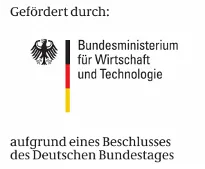The Institute of Automotive Technology (FTM) develops an Advanced Driver Assistance System (ADAS) which encourages and supports drivers to adapt an economical driving style within the joint project "ViFa - Virtueller Fahrtrainer".
Motivation
Within the joint project "ViFa - Virtual driving instructors", an Advanced Driver Assistance System (ADAS) is being developed at the Institute of Automotive Technology (FTM) which encourages and supports the driver to adapt an economical driving style.
Although environmental policy objectives in terms of CO2 emissions and the conservation of resources demand a constant reduction in fuel consumption, for haulage and transport companies the driving force is primarily economic considerations: technical innovations and improvements only find their way into the daily haulage business if they provide financial benefits to the company. However, the potential is largely exhausted, especially when it comes to vehicle-related measures. Although technical measures are possible, these high costs are offset by high development costs, so that the innovation often cannot be offered to the forwarding companies at an economically reasonable price.
In addition to the vehicle and the environment, the driver has a considerable influence on fuel consumption. In order to exploit this savings potential, driver training has so far been used almost exclusively. Thus, training courses certainly lead to a considerable reduction in fuel consumption, but they often have no lasting effect - the drivers fall back into their old habits.
Goal
The aim of the joint project "ViFa - Virtual Driving Trainer" is to develop a driver assistance system that continuously and sustainably improves the driving style of commercial vehicle drivers. The aim is to reduce both fuel consumption and component wear.
